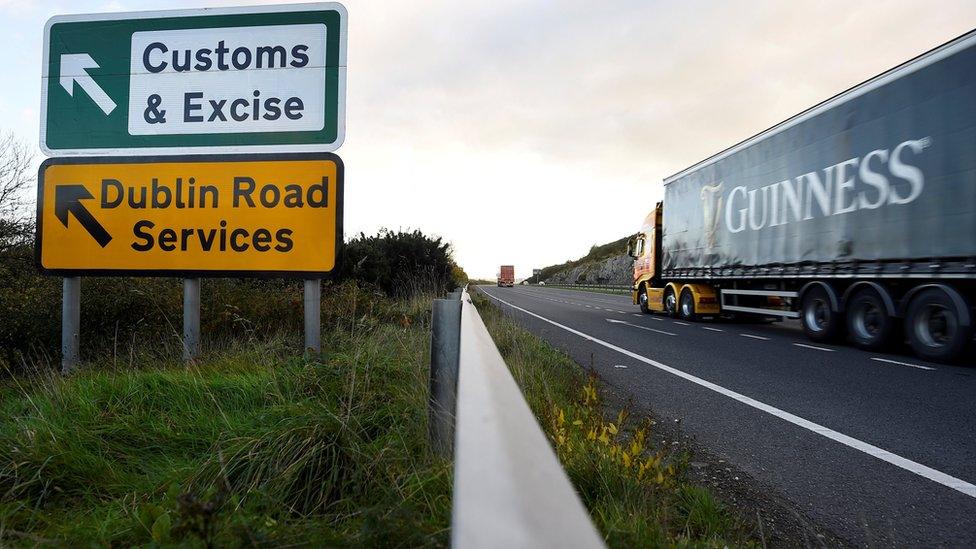Brexit: Backstop replacement plan rejected by business groups
- Published
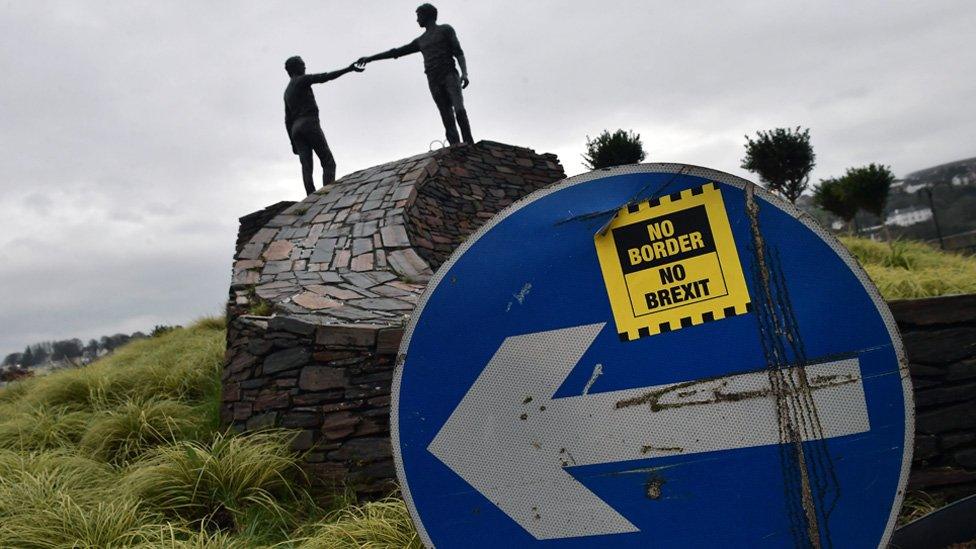
Four business groups have rejected a plan proposed to replace the controversial Brexit backstop.
The Alternative Arrangements Commission (AAC), a body led by two Conservative MPs, suggested a package of technical and administrative solutions.
It has been criticised as inadequate, unrealistic and lacking credibility.
The comments came in separate responses from haulage, retail and manufacturing groups in Northern Ireland, as well as the British-Irish Chamber of Commerce.
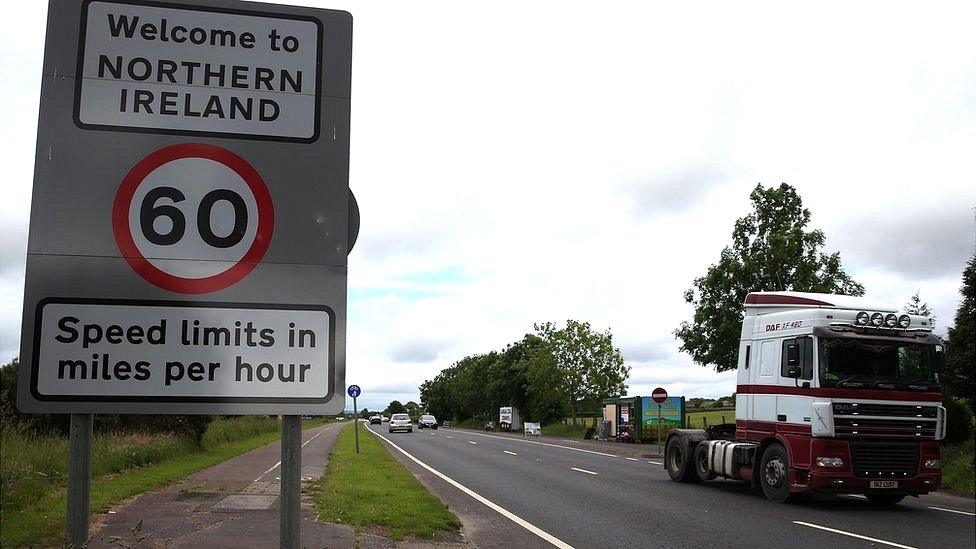
The Irish border is 310 miles long
The backstop is a way of maintaining a soft Irish border in the absence of other solutions.
It would involve significant continuing alignment between the UK and EU.
Many Brexit supporters oppose the backstop because they want to leave the EU's customs union and have the freedom to diverge from EU regulations.
They would prefer to use technical or technological solutions to maintain a soft border without regulatory alignment.
'Alterations'
On Wednesday, it was also revealed that the government's attempts to find a technological solution to the backstop ran into difficulties with its own business advisers.
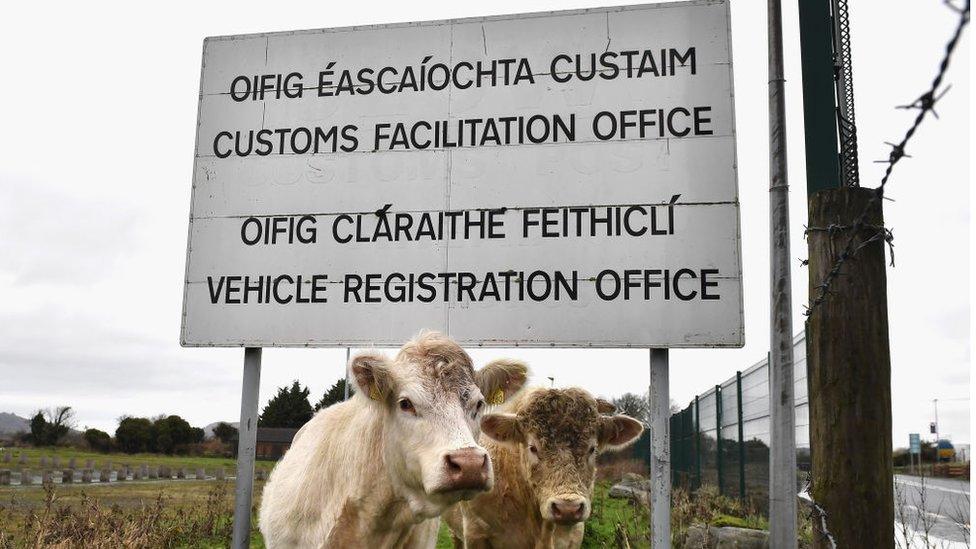
The NI Retail Consortium said the proposed mobile checks would "put unbearable costs into the supply chain".
The AAC has suggested the widespread use of trusted traders schemes for cross-border businesses, which would minimise the need for any checking of goods.
It proposed any customs checks could happen "inland" at warehouses or company premises using mobile inspection teams.
Use of customs brokers was proposed for small businesses, with the very smallest firms being exempt from any new procedures.
It also suggested that food standards checks could be carried out by mobile units away from the border.
'Frictionless trade'
Manufacturing NI, the NI Retail Consortium and the Freight Transport Association strongly criticised the plan.
Manufacturing NI said some of the suggestions in the report were useful and the AAC had engaged in an open and committed way.
But it said taken together, the proposals would "ask businesses and individuals to trust in the delivery of a complex mixture of derogations, simplifications and the rest, when there already exists a solution which delivers frictionless trade on the island of Ireland which is supported by the overwhelming by business, farmers and civic society."
It added that many of the proposals would require not only exemption or derogations, but changes to EU law and treaties and that the approach to VAT and state aid was inadequate.
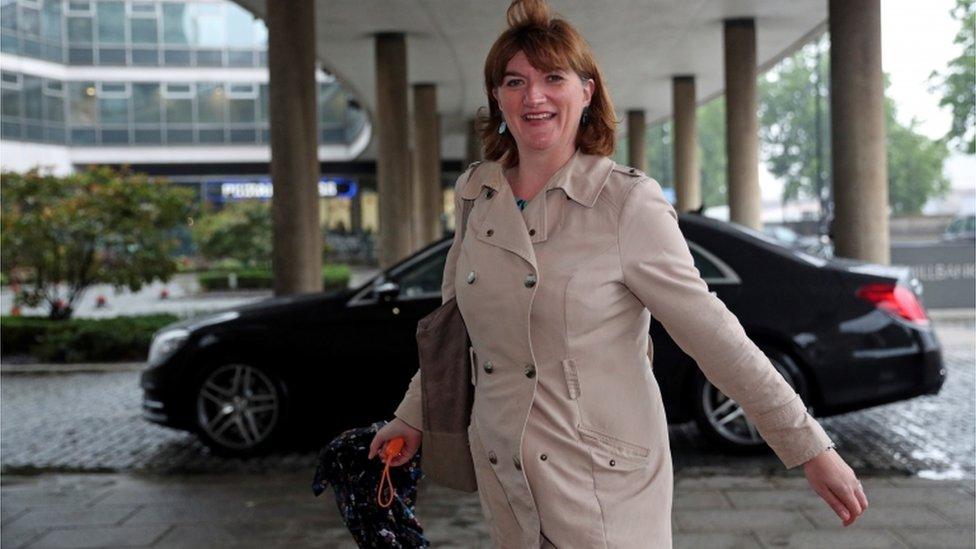
Nicky Morgan co-chairs the AAC with her colleague Greg Hands
The NI Retail Consortium said the proposed mobile checks would not only "put unbearable costs into the supply chain" but do not fulfil the UK Government's commitment to "the avoidance of a hard border, including any infrastructure or related checks and controls".
It added :"The solutions proffered add complexity and costs that will make business in NI less competitive and in some cases unviable."
The Freight Transport Association focuses on an AAC plan for the UK and Ireland to form a new single zone for food standards.
It describes this as "simply unrealistic and raises the prospect of more problems in the future should the UK diverge from EU regulations,."
The Alternative Arrangements Commission will shortly produce a protocol which it hopes could be inserted in the existing deal or used in any other Brexit outcome.
The UK government has also appointed three expert groups to produce official recommendations on alternative arrangements.
- Published9 July 2019

- Published22 August 2019

- Published24 June 2019
